
Walk Away
by
Douglas E. French
Published 1 Mar 2011
Americans now know that housing prices don’t always go up, and that they can in fact go down by 30–50% in a few short years. Because of this experience, private mortgage lenders will demand extraordinary down payments, impeccable credit histories, and significantly higher yields than what markets grew used to over the past several decades. Could an unbiased observer truly believe that housing starts of two million or even one million per year could be generated under the wing of the private market? In front of Treasury Secretary Geithner and the assembled audience, I said that was impractical. Let me amend that to “ludicrous.” Policymakers not only have to consider the future “flows” of new mortgage originations, but the existing “stock” of mortgages already created.
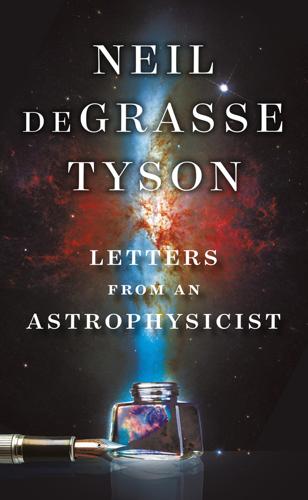
Letters From an Astrophysicist
by
Neil Degrasse Tyson
Published 7 Oct 2019
But, in fact, people of the day knew full well the difference between the two. So therein lies a non-convergent point of our conversation: You already know where you want to land. And God is there to design it. I have no idea where I am going to land. And if there is a God of unwavering intelligence, this fact is simply not evident in the book of nature to the unbiased observer. Natural selection never claims perfect design, or even good design, only a design that is more effective than that of a competing species, allowing survival long enough to reproduce. Nothing else matters to the process. Further, I never said the universe was not designed. I simply said that if it was designed, then there is ample (and widely ignored) evidence to demonstrate the designer’s blunders right alongside all those things that are marvelous.
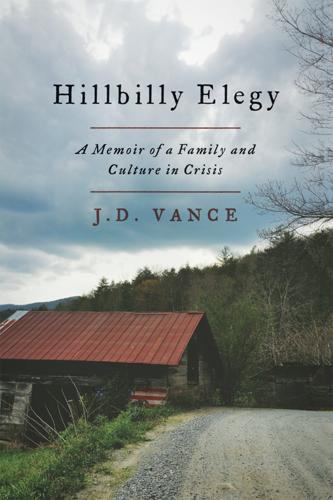
Hillbilly Elegy: A Memoir of a Family and Culture in Crisis
by
J. D. Vance
Published 27 Jun 2016
Indeed, when I asked my sister to read an earlier draft, that draft ignited a thirty-minute conversation about whether I had misplaced an event chronologically. I left my version in, not because I suspect my sister’s memory is faulty (in fact, I imagine hers is better than mine), but because I think there is something to learn in how I’ve organized the events in my own mind. Nor am I an unbiased observer. Nearly every person you will read about is deeply flawed. Some have tried to murder other people, and a few were successful. Some have abused their children, physically or emotionally. Many abused (and still abuse) drugs. But I love these people, even those to whom I avoid speaking for my own sanity.
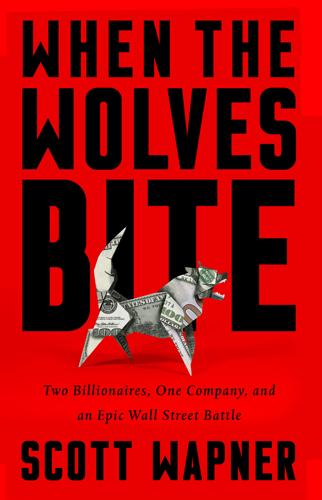
When the Wolves Bite: Two Billionaires, One Company, and an Epic Wall Street Battle
by
Scott Wapner
Published 23 Apr 2018
Loeb was now demanding four board seats, including one for himself, and slammed back against accusations he was a drive-by investor. “At the risk of beating a dead horse,” Loeb wrote, “we suppose that, by the Board’s analysis, it would have been this dreaded ‘short-term’ thinking to have allowed Microsoft’s $31 per share offer four years ago to be presented to shareholders. To the contrary, an unbiased observer might find Third Point’s thinking quite ‘additive.’ Third Point has been a driving force standing up for shareholders since we disclosed our position in Company shares in September.”15 Blood was in the water, and it was about to become a feeding frenzy. On Thursday, May 3, in yet another letter to the board, Loeb dropped a bomb—alleging that Thompson had padded his resume with a degree in computer science he never earned.
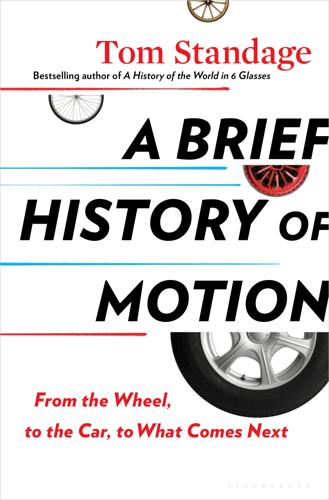
A Brief History of Motion: From the Wheel, to the Car, to What Comes Next
by
Tom Standage
Published 16 Aug 2021
“Judging from the great interest taken recently in experiments having for their aim the substitution of mechanical appliances in the place of horses for the propulsion of carriages and other road vehicles, it looks as if we will before long see a revolution in this direction,” observed the Pall Mall Gazette in September 1895. And, it observed, the race had cemented the place of the internal combustion engine as the technology that would displace the horse. “France has demonstrated to the satisfaction of all unbiased observers that conveyances worked by the aid of petroleum motors are less than half as costly to maintain as horses for the same service, and that they have other obvious advantages which are sure to lead eventually to the utter discarding of horseflesh,” the paper declared. “To be sure, these voitures mécaniques avec moteur à petrole look odd, but that is because we have been accustomed to see a nag instead of a box of machinery in the front of our vehicle.”
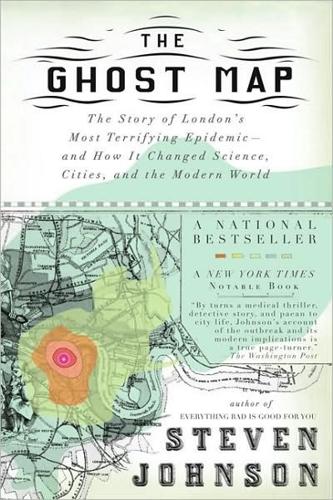
The Ghost Map: A Street, an Epidemic and the Hidden Power of Urban Networks.
by
Steven Johnson
Published 18 Oct 2006
Twelve of them relied on water from S&V, while three drank Lambeth water exclusively. And indeed, the disparity between the two groups in terms of cholera deaths was pronounced: roughly 1 in 100 died in the S&V subdistricts, while not a single person had died of cholera among the 14,632 Lambeth drinkers. An unbiased observer might have been persuaded by those numbers, but Snow realized his audience required more, primarily because the subdistricts served by Lambeth alone were relatively well-to-do suburbs, in contrast to the smog-bound industrial zones that S&V serviced. Once the miasmatists had a look at the different neighborhoods, Snow knew his case would dissolve in a heartbeat.
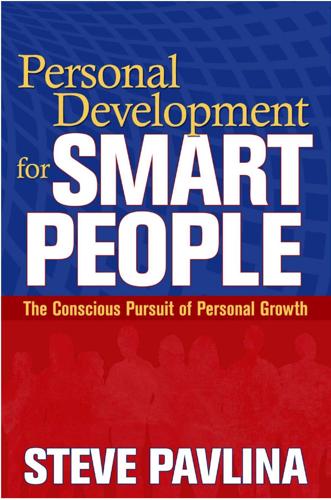
Personal Development for Smart People: The Conscious Pursuit of Personal Growth
by
Steve Pavlina
Published 14 Oct 2008
If you w a n t even more information, ask for a friend or family member's perceptions of your physical body as well, or consider getting a full medical checkup. N o w turn your attention to your predictions. You never know if these will be accurate, but y o u can certainly make reasonable guesses based on your current patterns. In order to be totally honest with yourself, use a third-person perspective. Imagine that an objective, unbiased observer carefully examines all the details of your physical 201 PERSONAL DEVELOPMENT FOR SMART PEOPLE life. W h a t will that person predict for your physical future? Is the expected outcome positive or negative? Is your health improving or declining? W h e r e are your current habits taking y o u ?

How Long Will Israel Survive Threat Wthn
by
Gregg Carlstrom
Published 14 Oct 2017
I have lived in Israel for the past three-plus years, and I have made reporting trips here throughout the past decade, criss-crossing the country to cover two Gaza wars, two “third intifadas”, an election campaign, and countless other stories, interviewing everyone from religious settlers to cannabis entrepreneurs (who occasionally have proved to be one and the same). I’ve also spent considerable time in the Palestinian-controlled parts of the West Bank, and I make regular visits to Gaza. I do not claim to know everything about this place, with its endless complexity and deep divides; no one does. Nor do I claim to be an unbiased observer; no one is. But this book is, I hope, a good-faith effort to document the events of three tumultuous years, viewed from all sides, and to use that as a prism through which to consider the future. My own politics are very much on the left side of the spectrum. I do not believe in the two-state solution, either on practical grounds or ideological ones.
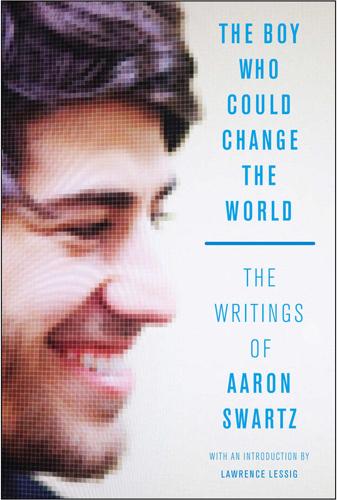
The Boy Who Could Change the World: The Writings of Aaron Swartz
by
Aaron Swartz
and
Lawrence Lessig
Published 5 Jan 2016
,” he proclaims “It’s not prudent, perhaps even not moral (if that doesn’t sound too melodramatic), to work on RDF, OWL, SPARQL, RIF, the broken ideas of distributed trust, CWM, Tabulator, Dublin Core, FOAF, SIOC, and any of these kinds of things” and says not only will he “stop working on the Semantic Web” but “I will, moreover, actively dissuade anyone from working on the Semantic Web where it distracts them from working on” more practical projects. It would be only fair here to point out that I am not exactly an unbiased observer. For one thing, Sean, like just about everyone else I cite in the book, is a friend. We met through working on these things together but since have kept in touch and share emails about what we’re working on and are just generally nice to each other. And the same goes for almost all the other people I cite and criticize.
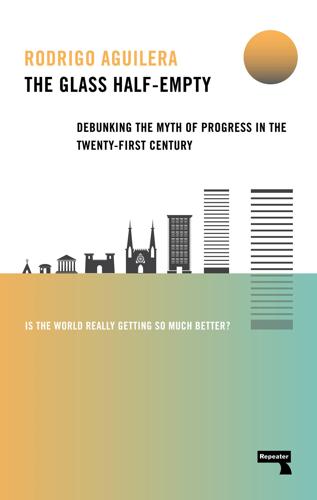
The Glass Half-Empty: Debunking the Myth of Progress in the Twenty-First Century
by
Rodrigo Aguilera
Published 10 Mar 2020
It’s the idea of progress that rankles the chattering class.23 Pinker’s belief that progressive thinking can lead down a slippery slope towards social engineering and totalitarianism has been repeated ad nauseum in so much of his writing that it’s not a stretch of the imagination to conclude that they are driven by ideology as much as they are induced by unbiased observation. “Twentieth-century Marxism”, he writes in The Blank Slate, “was part of a larger intellectual current that has been called Authoritarian High Modernism: the conceit that planners could redesign society from the top down using ‘scientific’ principles” before listing all the professions that seemingly perverted progressive utopian ideas, from architects to social scientists to feminists and child psychologists24.
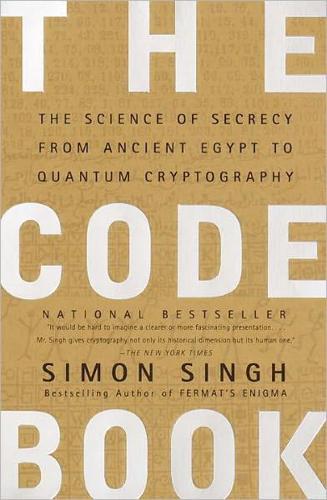
The Code Book: The Science of Secrecy From Ancient Egypt to Quantum Cryptography
by
Simon Singh
Published 1 Jan 1999
For years they pored over the two remaining ciphers, mounting various forms of cryptanalytic attack, occasionally fooling themselves into believing that they had a solution. A false line of attack will sometimes generate a few tantalizing words within a sea of gibberish, which then encourages the cryptanalyst to devise a series of caveats to excuse the gibberish. To an unbiased observer the decipherment is clearly nothing more than wishful thinking, but to the blinkered treasure hunter it makes complete sense. One of the Harts’ tentative decipherments encouraged them to use dynamite to excavate a particular site; unfortunately, the resulting crater yielded no gold. Although Clayton Hart gave up in 1912, George continued working on the Beale ciphers until 1952.
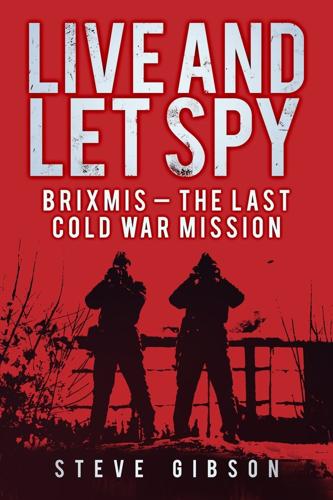
Live and Let Spy: BRIXMIS - the Last Cold War Mission
by
Steve Gibson
Published 2 Mar 2012
In 1990 the Soviets had announced the phased withdrawal of WGF forces from East Germany to take place over the next few years as a result of the Wall coming down. These were on top of the already planned withdrawals from the Warsaw Pact countries as outlined in the 1979 Stockholm agreement on Cooperation and Disarmament in Europe. A new Brixmis role became the independent and unbiased observation of Soviet troop withdrawals as well as the reorganisation of both NVA and Soviet orbats. While withdrawals commenced in January 1990, watched around the clock for several months on a tri-mission basis, the Missions also observed an almost feverish introduction of new equipment. As fast as troops and equipment left the country, there was still an extraordinary volume of new equipment systems coming back the other way.
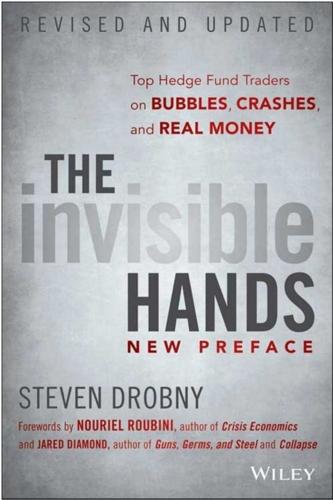
The Invisible Hands: Top Hedge Fund Traders on Bubbles, Crashes, and Real Money
by
Steven Drobny
Published 18 Mar 2010
Should you be using long-term forecasts for equity risk premia when the next equity risk premium could be negative? We use tactical asset allocation models to manage a portion of our capital and help our research process. These models help in two ways. First, they provide us with an independent yardstick, which we try to outperform. Second, we think of our tactical asset allocation model as an unbiased observer of the markets, which we use to give us some sense of the market’s momentum. They are price-based, momentum-driven models that have been running since about 2005, and have produced consistently positive results. Even our longer term model broke even in 2008, and it is only allowed to be long assets because in the long term you want to earn risk premium.
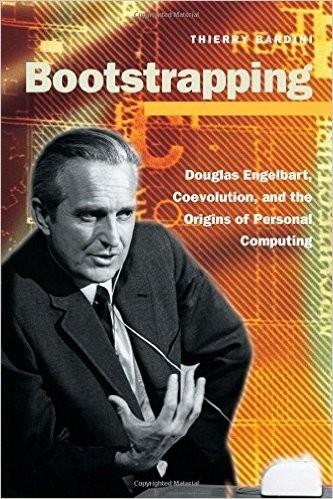
Bootstrapping: Douglas Engelbart, Coevolution, and the Origins of Personal Computing (Writing Science)
by
Thierry Bardini
Published 1 Dec 2000
His project for the augmentation of human intellect was never discussed inside the IPTO contractors' community as a potential alternative to a research program in artificial intelligence. 33 CHAPTER ONE Language and the Body If we "thInk" verbally, we act as biased observers and project onto the silent levels the structure of language we use, and so remaIn in our rut of old orientatIons, mak- ing keen, unbiased observations and creative work well-nIgh ImpossIble. In contrast, when we "think" without words, or in pictures (which involve structure and there- fore relations), we may discover new aspects and relations on silent levels, and so may produce Important theoretIcal results in the general search of similarity of structure between the two levels, sIlent and verbal.
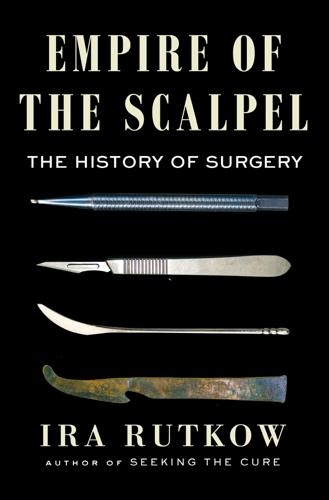
Empire of the Scalpel: The History of Surgery
by
Ira Rutkow
Published 8 Mar 2022
Under their influence, Egyptian Medicine was replaced by different ways of thinking, including the beginnings of evidence-based therapies as well as speculative mumbo jumbo. Before long, little was left of the ancient medical ways other than a dismal sort of alchemy and sorcery. The tenets of Egyptian surgery, its independence from the mystical and its rationality of action, fell silent. But the Greek emphasis on fair-minded inspection and unbiased observation in gathering medical knowledge, along with objectivity and practicality in the practice of surgery, would provide the light that continued to move the craft forward. I. Towering over everyone in the world of Egyptian Medicine was Imhotep, a man for all seasons who lived around 2625 BC. He was chief vizier to Pharaoh Djoser, architect of the Step Pyramid of Sakkara, high priest at Heliopolis, a dabbler in astrology, astronomy, and engineering, and a revered philosopher and poet.
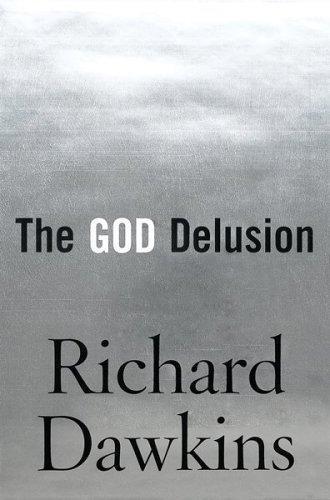
The God Delusion
by
Richard Dawkins
Published 12 Sep 2006
In any case, as I said, there is no good historical evidence that he ever thought he was divine. The fact that something is written down is persuasive to people not used to asking questions like: ‘Who wrote it, and when?’ ‘How did they know what to write?’ ‘Did they, in their time, really mean what we, in our time, understand them to be saying?’ ‘Were they unbiased observers, or did they have an agenda that coloured their writing?’ Ever since the nineteenth century, scholarly theologians have made an overwhelming case that the gospels are not reliable accounts of what happened in the history of the real world. All were written long after the death of Jesus, and also after the epistles of Paul, which mention almost none of the alleged facts of Jesus’ life.
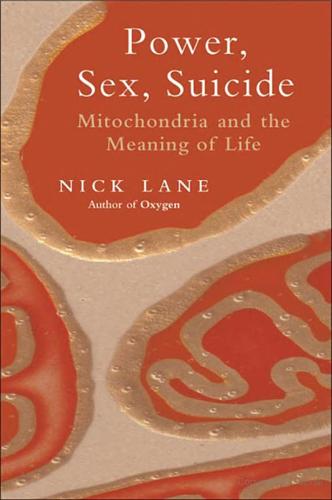
Power, Sex, Suicide: Mitochondria and the Meaning of Life
by
Nick Lane
Published 14 Oct 2005
By 2001, the evidence for recombination looked muddy, to say the least. The two major studies had both been discredited, and although the authors of both papers maintained that the rest of their data still raised doubts, that was only to be expected; they had to defend their tattered reputations. For an unbiased observer, it seemed that recombination had been disproved. Then in 2002, a fresh challenge emerged. Marianne Schwartz and John Vissing, at Copenhagen University Hospital, reported that one of their patients, a 28-year-old man suffering from a mitochondrial disorder, had actually in- 250 Human Pre-History and the Nature of Gender herited some mitochondrial DNA from his father, and so had a mixture of both maternal and paternal DNA—the dreaded heteroplasmy.
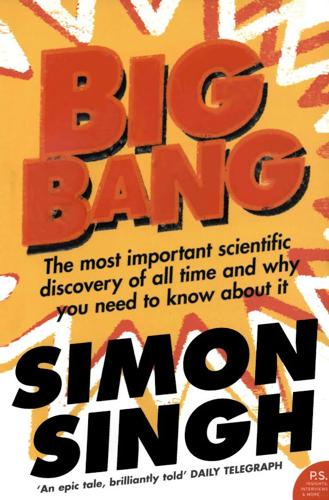
Big Bang
by
Simon Singh
Published 1 Jan 2004
There is a close parallel between theory and observation on the one hand, and mutations and natural selection on the other. Theory supplies the mutations, observation provides the natural selection. Theories are never proved right. The best they can do is to survive.’ But the Steady State model and its Quasi-Steady State reincarnation were barely surviving. Any unbiased observer could see that they were on the brink of extinction, whereas the Big Bang model was not only surviving, but thriving. The universe simply made more sense in the context of the Big Bang model. For example, in 1823, when scientists assumed that the universe was infinite and eternal, the German astronomer Wilhelm Olbers wondered why the night sky was not ablaze with starlight.
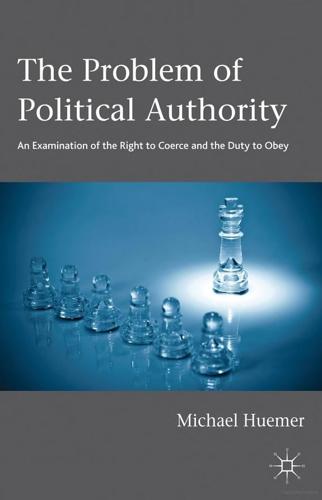
The Problem of Political Authority: An Examination of the Right to Coerce and the Duty to Obey
by
Michael Huemer
Published 29 Oct 2012
If many farmers were to do this, it would significantly lower the price of wheat. This, in turn, would have an effect on commerce in wheat, some of which crosses state borders. Therefore, by fining Filburn for growing too much wheat, the federal government was simply exercising its constitutional power to regulate interstate commerce. It is hard to believe that any unbiased observer competent in the English language would read the phrase ‘regulate commerce [ ... ] among the several states’ in this way. Here is the unofficial but more truthful account of events: At the beginning of his presidency in the early 1930s, Franklin Delano Roosevelt’s New Deal programs were repeatedly and decisively struck down for exceeding the powers granted by the Constitution.42 President Roosevelt sought to circumvent these decisions by proposing the Judicial Procedures Reform Bill of 1937, which would have given him the power to appoint six new justices to the Supreme Court, bringing the total to fifteen.
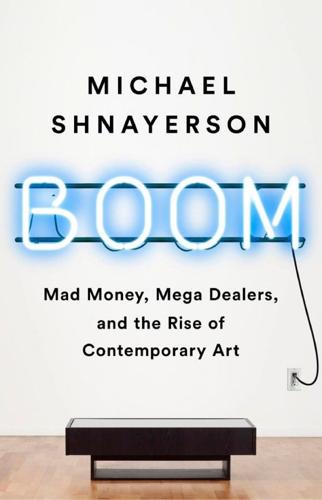
Boom: Mad Money, Mega Dealers, and the Rise of Contemporary Art
by
Michael Shnayerson
Published 20 May 2019
“You can’t sell stuff out of the studio.” That wasn’t quite true: painters from Courbet to Manet to Picasso had all sold from their studios, and those sales had not clouded the paintings’ provenance. But they did muddy the business, sometimes to the dealer’s detriment. Gagosian was hardly an unbiased observer, but his pitch against multiple dealers seemed heartfelt. “I think it’s a mistake in most cases,” he maintained. “They get kind of a sugar high, they get a little extra distribution. But… it can look like the artist is desperate. Why does he need so many shows? Do they have to sell something every minute?
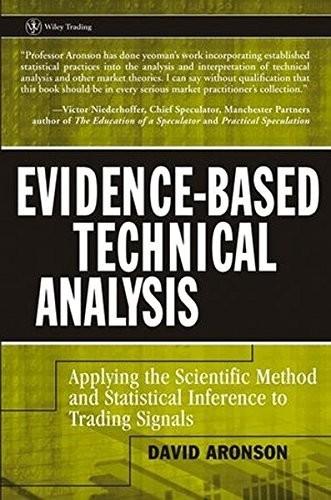
Evidence-Based Technical Analysis: Applying the Scientific Method and Statistical Inference to Trading Signals
by
David Aronson
Published 1 Nov 2006
Systematic error, if present, could be due to an imperfection in the scale, always causing the observed weight to be lower than the true weight. Unbiased and Biased Statistics Interpreting a large sample of observations is difficult. As was discussed in Chapter 4, a sensible first step is data reduction. This reduces the large True & Most Likely Observed Value Probability Distribution Of Observed Values FIGURE 6.6 Unbiased observations. Most Likely Observed Value True Value FIGURE 6.7 Observations with systematic error. Probability Distribution Of Observed Values 274 METHODOLOGICAL, PSYCHOLOGICAL, PHILOSOPHICAL, STATISTICAL FOUNDATIONS set of measurements to a smaller set of summary statistics: sample mean, sample variance, and other computed measures that describe the entire set of observations.
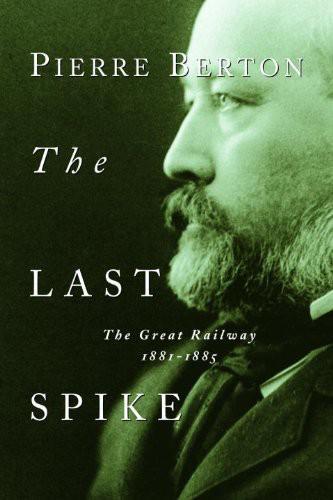
The Last Spike: The Great Railway, 1881-1885
by
Pierre Berton
Published 1 Jan 1971
Schreiber setting aside a contract and the scientific calculations of quantities executed and to be executed by engineers and adopting those guessed at by the company’s men in riding over the line – occasionally appealing to Trutch who sat behind looking wise and blinking like a Centennary owl – confirming by a nod everything that Schreiber did. This was the end of the first act of the drama of corruption openly played.” Although Marcus Smith’s witness cannot be taken as gospel – he was far too suspicious of too many people to be considered a fair or unbiased observer – it is quite clear that, for one reason or another, the government engineers did not hold Andrew Onderdonk to the letter or even the spirit of his contract and that they allowed a good deal of shoddy work to go unremarked. (It is possible that Onderdonk’s vigorous lobbying in Ottawa persuaded the government to wink at some of the shortcuts he subsequently took.)
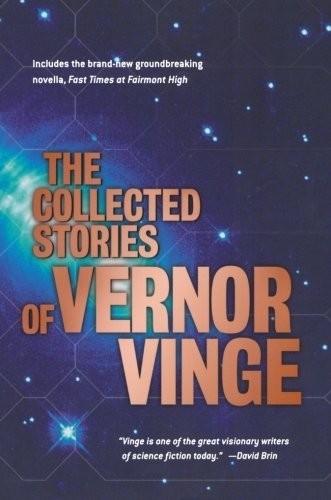
The Collected Stories of Vernor Vinge
by
Vernor Vinge
Published 30 Sep 2001
The last remnants of White Africa were physically pushed from the wharves and sunny beaches into the ocean. The Zulunders had succeeded in exterminating the Whites, and thought they succeeded in obliterating the Afrikaner culture from the continent. Of course they had been wrong. The Afrikaners had left a lasting mark, obvious to any unbiased observer; the very name Zulunder, which the present Africans cherished fanatically, was in part a corruption of English. “By the sixtieth day, we could say that not a single White lived on the continent. As far as we know, only one small group evaded vengeance. Some of the highest-ranking Afrikaner officials, maybe even the Prime Minister, commandeered two luxury vessels, the SR Hendrik Verwoerd and the Nation.
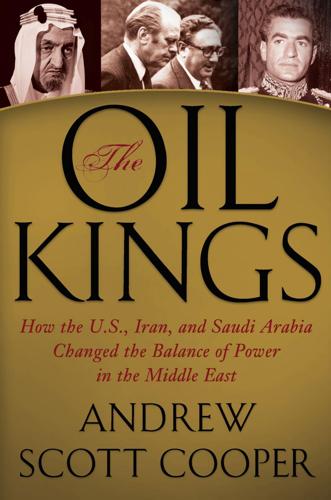
The Oil Kings: How the U.S., Iran, and Saudi Arabia Changed the Balance of Power in the Middle East
by
Andrew Scott Cooper
Published 8 Aug 2011
It was a plan that had the potential to ignite a religious-based war pitting Shi’a Iran against its Sunni Arab neighbors and potentially draw in the Soviet Union. The Shah was advocating regime change in Kuwait and Saudi Arabia under cover of declaring an unspecified regional “emergency” or “crisis,” most likely one involving Iraq and its patron the Soviet Union. The problem was that the Shah was hardly an unbiased observer. Arab governments distrusted his ambitions and wondered how they fitted into his newly reconstituted Empire of Iran. Iran’s unilateral seizure of the three islands in 1971 still rankled. The new secretary of defense, James Schlesinger, later aptly summed up the 1973 state visit as “a renewal of vows, as it were—a renewal of marital vows” between Nixon and Kissinger on one side and the Shah: “The Shah, as you may know, since he was an absolute monarch, tended to spin out these theories in Tehran, and as he did so he was surrounded by a group of men who’d say, ‘How wise you are, Your Majesty, how insightful!’

The Age of Wonder
by
Richard Holmes
Published 15 Jan 2008
At a meeting of the Newcastle Literary and Philosophical Society on 5 December 1815, at which both Clanny’s bellows lamp and Stephenson’s conical lamp were examined (’it resembles a wine decanter’, remarked the Newcastle Chronicle jovially), the questions of priority and pirating were first raised. The Newcastle Society showed its admirable objectivity by presenting examples of the true gauze lamp, as used by Buddle at Walls End, at its meeting of 6 February 1816. It was immediately clear to unbiased observers that the Stephenson and the Davy were very different instruments. But nothing could prevent the major public row now brewing, with letters to the newspapers, polemical pamphlets, and wide controversial comment in the journals. Not all of this was favourable to Davy, and there was a clear evidence of a North-South split as sides were taken.
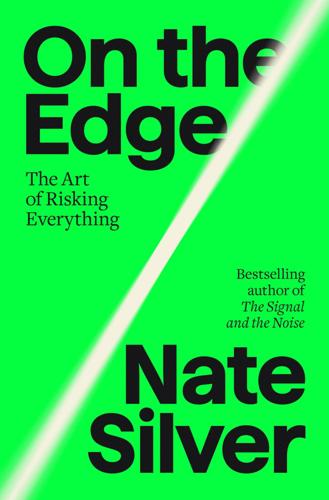
On the Edge: The Art of Risking Everything
by
Nate Silver
Published 12 Aug 2024
Incursions into enemy territory are treated with alarm, like when Google’s AI model Gemini was criticized by Riverians for reflecting distinctively Villagey political attitudes. I have a unique vantage point as someone who passes back and forth between these worlds. To be clear, I am not an unbiased observer. People in the River are—for better or worse—my kind of people. Conversely, I’ve never quite taken to the Village, and I’ve often felt like media coverage of me and FiveThirtyEight was misinformed, particularly after the 2016 election. But I do hear a lot of the complaints that these communities have about each other.
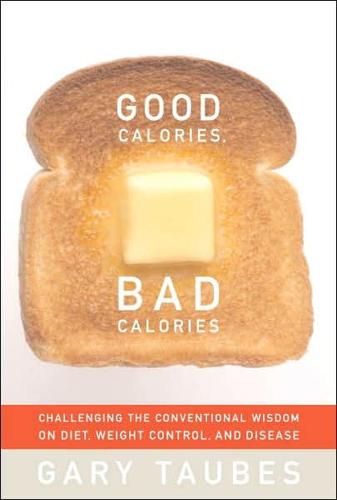
Good Calories, Bad Calories: Challenging the Conventional Wisdom on Diet, Weight Control, and Disease
by
Gary Taubes
Published 25 Sep 2007
THOMAS HAWKES TANNER, A Manual of Clinical Medicine and Physical Diagnosis, 1869 Chapter Fourteen THE MYTHOLOGY OF OBESITY A colleague once defined an academic discipline as a group of scholars who had agreed not to ask certain embarrassing questions about key assumptions. MARK NATHAN COHEN, Health and the Rise of Civilization, 1989 CRITICAL TO THE SUCCESS OF any scientific enterprise is the ability to make accurate and unbiased observations. “To have our first idea of things, we must see those things,” is how Claude Bernard explained this in 1865; “to have an idea about a natural phenomenon, we must, first of all, observe it…. All human knowledge is limited to working back from observed effects to their cause.” But if the initial observations are incorrect or incomplete, then we will distort what it is we’re trying to explain.
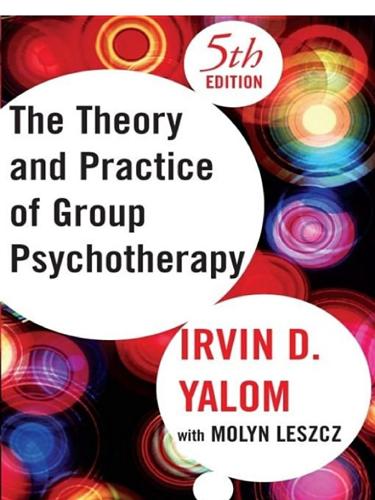
Theory and Practice of Group Psychotherapy
by
Irvin D. Yalom
and
Molyn Leszcz
Published 1 Jan 1967
None of these sources is beyond doubt, however; neither group members nor group leaders are entirely objective, and our research methodology is often crude and inapplicable. From the group therapists we obtain a variegated and internally inconsistent inventory of therapeutic factors (see chapter 4). Therapists, by no means disinterested or unbiased observers, have invested considerable time and energy in mastering a certain therapeutic approach. Their answers will be determined largely by their particular school of conviction. Even among therapists who share the same ideology and speak the same language, there may be no consensus about the reasons clients improve.

England
by
David Else
Published 14 Oct 2010
A recent spate of stabbings and shootings coupled with the growing gang culture in many English cities, plus the continuing divisiveness of the wars in the Middle East and the fallout from the 7/7 tube bombings (committed by British-born extremists) all hint at the disaffection and disillusionment felt by many English communities. Even the most unbiased observer would have to admit that there’s something slightly awry in a country that has more CCTV and speed cameras than anywhere else in Europe and where the nation’s kids have been dubbed ‘the unhappiest in the Western World’ according to a recent Unicef poll. It’s perhaps unsurprising that record numbers of people are giving Blighty the boot in favour of pastures new.